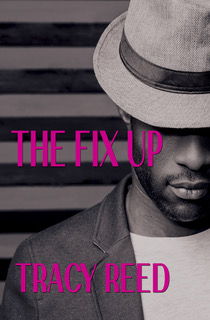Taking Care of Yourself – Not an Option by Kitty Bucholtz
November 9, 2010 by A Slice of Orange in category Archives tagged as It's Worth It I’ve been a full-time grad school student for the last eight months. It’s been wonderful and exhausting. I’ve loved school since kindergarten and I’ve been looking forward to grad school for nearly a decade. The process of getting accepted and enrolled happened in a whirlwind and I didn’t have any time to plan for it. I started school in March (the autumn semester here in Australia) and hadn’t even finished my U.S. taxes, so I started out behind already in terms of time.
I’ve been a full-time grad school student for the last eight months. It’s been wonderful and exhausting. I’ve loved school since kindergarten and I’ve been looking forward to grad school for nearly a decade. The process of getting accepted and enrolled happened in a whirlwind and I didn’t have any time to plan for it. I started school in March (the autumn semester here in Australia) and hadn’t even finished my U.S. taxes, so I started out behind already in terms of time.
And nothing really changed.
I stayed barely one step ahead of the slashing scythe of time the whole year. With three weeks left to go and three more assignments due – and Australian taxes due by the weekend! – I can tell you some things I’ve learned. I hope they help you prepare for NaNo or your next writing push.
Sleep
Know yourself. Do you need 6-7 hours a night? Then don’t go below 6. I am a happy camper with 8 1/2 hours plus time to lie in bed before I get up. (I like to talk to God about my day and mentally map it out.) So I try not to get less than 7, and I don’t get less than 6 hours two nights in a row. When I know I’m going to have a timing issue with sleep, I try to plan around it. On nights I’m out late for class or a meeting, I try to make sure the next morning is not a running morning. (On running days I get up at least an hour earlier.)
Know how you sleep and what helps you sleep better or worse. I’ve found I don’t sleep well if I’ve eaten in the last couple hours before bed. If I drink too much liquid in the last 4-6 hours of the day, I will often wake up and then rarely sleep well again after the bathroom break. (I now try to drink my many glasses of water from the time I wake up until about 3pm. I’m a big water drinker, but it’s bad for sleeping well.) The stress of school hasn’t helped either. A nutritionist at the local pharmacy suggested some natural herbal sleep aids. They’ve done wonders!
Exercise
I used to hate exercising. I don’t know why. I really don’t know why I’ve come to love running! 🙂 But here is a very real example for you. John and I ran a half marathon in September. We wanted a few days break from our running schedule, so we took it. Company came and we got lazy for another 10 days. Then it seemed to rain every morning that we planned to run. Before we knew it, a month had passed before we went out again. It was no surprise that we did terribly those first few days. What was a surprise was how much better I felt within a day or two after getting back into my regular running routine. I had more mental and physical energy to pour into my work.
If you exercise, keep at it. If you used to, but don’t do it anymore because you don’t have time, get back into it. If you hate the very word, do some floor exercises or at least stretches every day. This will help you stay strong while you spend time at your computer. And remember to stretch every 20-30 minutes. I set my kitchen timer this week and did a different stretch every 20 or so minutes. Each time took about 1 minute or less. Not that much time out of your day! I think you’ll see it has lasting positive effects.
Nutrition
This is my biggest weakness. (Have suggestions? Please share them!) The only thing I know for sure is that if I start the day with eggs or a protein shake, everything is better. I don’t have as many cravings and I find it somewhat easier to skip the sugary foods in my pantry. And I feel like I can concentrate better. But if I start with my favorite jaffa muffin from Brumby’s (an orange and chocolate chip muffin from my favorite bakery), I seem to crave sugars and breads all day.
When I asked the nutritionist about something to help me sleep, I told her about my life and stress and asked if she had any advice. She not only suggested the protein shake in the morning, or sprinkling the protein powder on healthy cereal, but she said I’d be better off keeping some fruits and nuts nearby for snacking. I’ve been eating prunes and dried apricots and almonds and peanuts for snacks lately. Again, big difference. Not only is it better for my body than sugary snacks and cookies, but my snack-craving fades after I’ve eaten a couple handfuls. Then I’m back to focusing on my work again. (One new favorite for breakfast or snacks – Special K with Chocolatey Flakes. Mmm.)
If you’re like me, and you work until you’re starving hungry and then have no self-control until you’ve put something in your stomach to ease the hunger pains – put a bag of your favorite dried fruit or nuts or whatever on your desk. Keep a package there – airtight so you don’t get bugs – and remind yourself to reach for it any time, guilt-free!
Rewards for NOT Doing It
We often talk about rewards as part of your writing routine. But it’s usually ways to reward yourself for your accomplishments. I’ve gotten into the habit lately of rewarding myself for what I’m not doing. If I don’t check email or do anything else in the morning, just sit down and do my work until lunch time, I reward myself with TV during lunch. My big weakness is doing other little things before the big thing that needs to be done in my day. (Lately, homework, but also putting writing first.) Then the big and most important thing doesn’t get completed until late in the day because I started it later than I should have/wanted to. (Or worse, it doesn’t get completed that day.)
When I go on my writer’s retreat this weekend, talking is going to be the biggest problem (and not just for me!). I have to think of something not-unhealthy to reward myself for not talking during our designated writing times. Giving myself cookies as a reward will only undermine my new goal for the summer to lose weight. 🙂 I’m still working on the rewards for changing my “bad†behaviors. Throw out some ideas if you have any. The idea is to sabotage your self-sabotaging behaviors.
One reward I decided on months ago was to do some teaching during the summer. I’ve been so busy with homework that I haven’t been able to do a lot of fun stuff lately. I’m excited to tell you that I’m teaching an online class in January – Going the Distance: Goal Setting and Time Management for the Writer. Look over the outline and sign up. We’ll start 2011 by creating better writing routines together!

Kitty Bucholtz is the co-founder of Routines for Writers, a web site dedicated to helping writers write more. She writes romance novels, light urban fantasy novels for adults and young adults, and magazine articles. She is currently enrolled in the Master of Arts in Creative Writing program at University of Technology, Sydney.
Planning for a Writing Push by Kitty Bucholtz
October 9, 2010 by A Slice of Orange in category Archives tagged as It's Worth It
What must be done before the push?
I’m going on a weekend writing retreat with my writer’s group at the end of the month. One of the first things I do when preparing for an event is check my calendar. Australian taxes are due that weekend so I need to make sure I’ve mailed them before then. If I have any blogs due around that period, I’ll write them earlier and set them to post on the correct day.
In order to focus on getting the most amount of writing done that weekend, we’re planning some very easy meals – bagged salad, baked chicken, apples and nuts for snacks. Because I’m the primary grocery shopper at home, and because John is having a Guy’s Xbox Party while I’m gone, I’ve already started buying things that are on sale (cookies this week! Okay, so it won’t be all nutritious snacks!) that I think we’ll need for our weekend events. The day I get home is a birthday party, so I’ll make sure the card and gift are ready, too. This is all shopping I’ll have to finish at least a day or two before I leave. (And I have to keep up with all my homework, too!)
Also, if there’s time, I’ll try to get some brainstorming done, get my work for the weekend organized, etc. Too often, this ends up being the first thing I do during my writing push because I was doing all those other things to get ready to leave. 🙂
What must be done during the push?
It’s easier to decide how I feel about a weekend or week or NaNo if I know what I’m aiming for. Sometimes, just writing every day is a success. Other times, I want to get a certain number of words written, or get to a certain point in the project. When I make a goal, even a range (for example, aim for 50,000 words during NaNo, choose to be happy if I hit 35,000), it gives me a better idea of whether I think I did well, or whether I need to change how I do things in order to get more done next time.
Let me encourage you to make your goals your own. If you don’t write 50,000 words during NaNo or you don’t write a book in a week (BIAW), it’s only a problem if you think it is. There are plenty of ways to choose your goal – a certain number of words or chapters written, a certain amount of editing, finish a section or the project, write a synopsis, write flat out without stopping to think about your choices (this can be fun), write for a certain number or minutes or hours per day or per week, or anything else you can come up with. Be as risky or as safe as you want.
There are some things that need to be done – avoiding distractions – that are more like “things not to do.” Consider using an email vacation reply if your writing push is short enough like a week or a weekend. You could choose not to look at and/or answer email at all until your writing day is over. You could give yourself a one-hour lunch break every day when you can do anything you want – including email. I think you can see now that I think email is the biggest distraction! 🙂 I bought a downloadable program called Freedom that disables my Internet connection for a user-determined number of minutes. That also keeps me from too much Internet research when I want to be writing.
What might you plan to do after?
Depending on the length of the push – a weekend or a month – you may feel nearly overwhelmed by the catch-up work that comes later. I’ve found that sometimes the number of things I put off in November to hit my 50,000-word target have kept me in catch-up mode into January because Christmas takes away most of my “free” time in December. I haven’t always thought NaNo worth it come January. By then I feel so behind, and I often haven’t written much on the project that I just spent a whole month straight working on – so I’ve lost momentum, too.
But if I can plan some time into my calendar for catch-up work, the strain is less. Consider blocking out some time in the first week back for extra email time, laundry, shopping, extra family time, and to organize what you did during the push so that you lose the least amount of momentum. I’ve heard too many friends say they hate taking a vacation because coming back to work after a week or two is punishing. They are overwhelmed at how behind they are or feel they are. Other friends spend a grueling amount of time at work in the week before to try to offset the pain in coming back. It doesn’t matter how you handle it, but if you think about it before you even leave, you may find there are ways to lessen the burden.
I hope this gives you some food for thought as you prepare for your next writing push. If you’re going to do NaNoWriMo this year, some of these ideas may help you get more accomplished without running yourself ragged. I’m going to use these principles for my 3-day writing retreat in a few weeks, and then again for my 3-month summer break from university starting mid-November. I’ll have to adjust the planning for a very short period and for a very long period.
If you have any planning methods that help you during NaNo or BIAW or any other writing push, share them here. It’s always fun to find new ways to get more writing done!
Note: If you’re interested in more on this topic, I’ll be teaching an online class on goal-setting and time management in January for OCC. Check back for more details in the next couple months!

Kitty Bucholtz is the co-founder of Routines for Writers, a web site dedicated to helping writers write more. She writes romance novels, light urban fantasy novels for adults and young adults, and magazine articles. She is currently enrolled in the Master of Arts in Creative Writing program at University of Technology, Sydney.
A Filter For Your Writing Well by Kitty Bucholtz
August 9, 2010 by A Slice of Orange in category Archives tagged as It's Worth ItI had a bad week last month. I got a couple of my final school papers in the mail and I wasn’t pleased with my grades nor all the comments from my teachers. I thought I’d done a lot better than I had. (If you didn’t know, I’m getting my Master of Arts in Creative Writing degree at UTS in Sydney.) Like so many things in life, I didn’t fully understand what had so upset me until a few days after my mini-meltdown.
The shortest explanation is one a friend had to remind me of – the last year and a half has seen a lot of huge changes in my life. Regardless of the fact that I wanted most of those changes (moving around the world, going back to school), they still take a physical and emotional toll. Add in some short-term good things (company from America) and some short-term irritations (accountant needed more tax info from me that I had to find), and I found myself getting angry to one degree or another regularly, finally losing it when I received my school papers.
The reason I didn’t recognize what was happening is that it was all on the inside. I’d get mad about something, vent, and move on to the next thing. I’d get frustrated, take some deep breaths and push through. Then I’d get down about something (grades) and find myself unable to get up again. Because I was focused on trying to push through, to be strong and keep plugging along, I wasn’t paying attention to what was happening on the inside until I couldn’t get out of bed one day.
The day that happened I knew I had some serious thinking to do. It finally occurred to me that I was low-level angry at all kinds of things a lot of the time. In the stress of my first semester of grad school, I’d let my interior monitor get out of sync. By the end of the semester, I couldn’t even tell I was stressed about anything. But that morning in bed I realized I’d stopped making a conscious choice about how I wanted to react to the situations around me. I’d gotten into the habit of letting myself feel frustrated at every opportunity, at the world, at others, and at myself.
So for the last week, I’ve been practicing choosing not to be angry, frustrated, or depressed about things. It’s amazing how many opportunities there were for practice! ![]() But my interior monitor is getting re-synced. I’m getting better at reading myself again, and knowing when something needs to give, or change, or be left behind.
But my interior monitor is getting re-synced. I’m getting better at reading myself again, and knowing when something needs to give, or change, or be left behind.
I was at a friend’s house who has a reverse-osmosis filter at her kitchen sink. She reminded me to fill my water glass using the filtered water rather than the regular tap water. The parallel between the water and my bad week was instantaneous. She needed a filter so that the water coming through her old pipes would not bring up all the rust and other deposits into the glass.
We need the same kind of filter when we are writing. We need something that purifies the water coming up out of our inner well. For many of us, that filter is the joy of writing. But that filter needs to be cleaned regularly or it stops working as well. I’m trying to shine up my joy-of-writing filter every time I sit down to write now. I picture myself writing happily on my book, and I let that image seep into me until I can feel myself smiling over how much I’ll enjoy it. Then I start writing.
Like with any other rejection, I gave myself 24-48 hours to get over the sting of those first semester grades. Then I went back to work on my book, knowing that I understand my target market and believing that I’m doing a good job even if my academic acquaintances only half-agree.
If you haven’t done so lately, take a minute and check your interior monitor. Do you need to take a break? Do you need a cleaner writing filter? Or is your writing well clean and full of fresh ideas? I think I’m going to try to add this to my monthly or quarterly routines.
Kitty Bucholtz is the co-founder of Routines for Writers, a web site dedicated to helping writers write more. She writes romance novels, light urban fantasy novels for adults and young adults, and magazine articles. She is currently enrolled in the Master of Arts in Creative Writing program at University of Technology, Sydney.
2 0 Read moreThe Cost of Writing by Kitty Bucholtz
July 9, 2010 by A Slice of Orange in category Archives tagged as It's Worth ItWhen I was in business school, I learned about opportunity cost. In general, if you have $20 and you want to see a movie, eat lunch out, and buy a new blouse, all the things you don’t do with the $20 is part of the cost of what you do choose to do. So if you buy a new blouse, it cost you $20 plus eating a sack lunch plus not seeing a movie this week. If you go to a movie and have lunch out, it cost you $20 plus foregoing movie snacks plus foregoing a sit-down lunch and eating fast food instead plus waiting to buy a new blouse.
When you choose what to do with your time, what you don’t do is the cost of what you chose to do. Every time I choose to watch an hour of TV with my husband, it costs me an hour of writing (or anything else I might have done with that hour). Conversely, every time I spend an hour writing or working in the evening, it costs me an hour with my husband. How many of us have gone to see a movie that we expected to be fun and came out complaining, “Well, that’s two hours of my life I’ll never get back again!†No matter what you do with your time, it’s time you won’t get back again. That might be what someone was thinking when they came up with the slogan, “Work hard, play hard.â€
Instead of focusing on all the things we aren’t getting done (this is me, every day), we need to focus on what is the best use of our time now. In an hour, we might want to stop for a second and ask the question again. Perhaps again in four hours, or in another 30 minutes. If we can tap into a kind of moment-by-moment wisdom and allow ourselves to accept that we likely won’t accomplish everything we want to do – or perhaps even need to do – we can find greater peace and deeper joy in every moment, no matter what we’re doing.
Next week, I’m going to participate in a Book-in-a-Week challenge with my Sydney RWA group. To do that, it will cost me a great deal. I won’t be able to work on my taxes (the Australian tax year ends June 30); I won’t be able to clean my office; I won’t be able to do any but the most basic housecleaning; I won’t be able to hang out with friends, etc. But I’ve decided the cost is worth the benefit. I want to get my book out in August, and this is what it’s going to take.
The following week, one of the first things I’m going to do is clean my office. While this can be a procrastination technique, sometimes not doing it has too high a price. The time it took me to complete my U.S. taxes earlier this year was nearly double because I couldn’t find all my files after I moved. In the last ten months that we’ve been in this apartment, I have spent 20-30 hours (conservative estimate) looking for things that I couldn’t find because I never finished organizing my office (nor the office stuff that never made it into the office). The cost of organizing will probably be 10-15 hours of writing time. But the benefit will be 20-40 extra hours of writing time in the next six months because I won’t have to spend time digging through piles and boxes again.
Opportunity cost can feel double-edged – no matter what good you do with your time (writing, helping a friend), there is some other good you are not doing (spending time with family, doing taxes). And I feel a hundred times worse when I look back and realize I’ve made a poor choice, not even a halfway decent choice. (Because I watched two hours of TV on my lunch break, I now have to write or do taxes when John is home so I can’t spend time with him.) What is a person to do?
I find one of the best sources of wisdom to be the book of James in the Bible. James says trials and testing develop perseverance, which develops character. He says if anyone lacks wisdom, she should ask God who gives it generously to all. If we have faith, but don’t follow it up with work, our faith is pointless. So if I believe I’m good enough to be published but I don’t finish my manuscripts and send them out, my faith in my gifts is useless to me.
But James also encourages us to take a deep breath and remember we’re only human and we all stumble in many ways. He reminds us that bitter envy and selfish ambition do not help us succeed in any goal. He says wisdom that comes from heaven is pure, peace-loving, considerate and more. (You’ll find these in a good writer’s group.) He reminds us that we don’t even know how long our lives are or what will happen in them, so not to get hung up on set-in-concrete goals. We should just say, if God and life allow it, I will do this or that. He also encourages us to have patience, to remember that a farmer does a lot of work, and then does a lot of waiting while the crop grows.
And that is the rounded view of opportunity cost – we make goals, we count the cost, we ask for wisdom, we make decisions, we work hard, we remember we’re only human, and we accept that life may change our goals over time. When I keep this mind, I find my life more peaceful, joyful and productive. I hope it helps you, too.
Kitty Bucholtz is the co-founder of Routines for Writers, a web site dedicated to helping writers write more. She writes romance novels, light urban fantasy novels for adults and young adults, and magazine articles. She is currently enrolled in the Master of Arts in Creative Writing program at University of Technology, Sydney.
4 0 Read more
Satisfaction Guaranteed by Kitty Bucholtz
June 9, 2010 by A Slice of Orange in category Archives tagged as It's Worth It, Kitty BucholtzIt’s the beginning of the end. (Thank you, God!)
Last night was the first of my final classes in semester one of my master in creative writing degree. I turned in my final paper for my Professional Editing class, wrote a sample back cover blurb for the manuscript we’d done a structural edit on, and then most of us went to the pub to celebrate with a drink and some potato wedges. Woo-hoo!
Now I need to do it again tonight. And tomorrow night. I finished tomorrow’s final paper only this morning. Talk about cutting it close! Last Sunday I woke up and did the math – I had four projects to complete in eight days. (They’d all been started.) That’s two days per project. Eek! I finished the first two projects in four days – totally on time according to my self-inflicted schedule. Then the third project took the next four days. Yikes! So I had only a few hours over the next two mornings to finish the last project – thankfully, the one for the last class.
By last week, I was already questioning my expectations about what I wanted to do – finish four A-quality projects in the time I had – versus what I thought I might have to do – finish as best I can. I even asked a few friends what they thought because I was seriously stressing out – tight shoulders, headache, sleeplessness. One friend told me I needed to lower my expectations to what I could really do at this point. Another friend said I shouldn’t try for anything less than an A, no matter what it took. (After all, it was only one week.) Well, kind of them to try to help but… I still had to try to decide what *I* was going to do.
In the end, it’s no surprise that I decided to put everything I had into it to get the closest I could to an A on every project. It’ll be a month or more before I know my grades, but at this point I’ll have no regrets. My expectations of myself were fairly high throughout the semester, and I’m pretty content with my work. But last night, I started asking my friends and fellow students if my expectations of the graduate program were off.
I’ve been more than a little irritated some days when I’m in class listening to an instructor cover an incredibly basic point – like properly formatting a manuscript. I’ve been writing and publishing since 1997 and started grad school to bring my skills to the next level, the novel-publishing level. But some of my fellow students have said in class that this is the first time they have ever written any fiction of any kind! It makes me want to scream!
Hence my question after class last night – are my expectations off?
I am so glad I asked. Turns out there are three writing programs – the master of arts that I’m in, a diploma program, and a certificate program. And many of us are taking the same classes. That’s why there is such a wide range of writers in each class – a few people like me who have had books get to the “almost” stage at a publisher, a few people at the other end who have never written anything, and everyone else in the middle.
Now I know my expectations were off. I need to think of my classes as more like high-level critique groups filled with all levels of writers. Then I can be willing to be helpful to others without feeling like some people are holding me back. Because I’ve chosen to change my expectations, I’m finding myself already calming down, de-stressing, and thinking about how I can just focus on improving my writing. Period.
Stress comes from expectations not meeting reality. When reality is less than what you expected, you experience distress and dissatisfaction. When reality is better than you expected, you experience eustress and satisfaction. It’s not always about raising or lowering your standards, but changing them as needed to accommodate changes in the situation or the available information. (Remember last week when I was trying to decide if my expectations of my work habits were off?) I’m not going to lower my expectations of myself, but I am going to modify my expectations of my classmates and my future classes. I’ll keep the pressure on myself to do what *I* need to do while allowing my teachers and fellow students to do what they need to do.
In the end, I think it will be more satisfying for all of us.
Kitty Bucholtz is the co-founder of Routines for Writers, a web site dedicated to helping writers write more. She writes romance novels, light urban fantasy novels for adults and young adults, and magazine articles. She is currently enrolled in the Master of Arts in Creative Writing program at University of Technology, Sydney.
Affiliate Links
A Slice of Orange is an affiliate with some of the booksellers listed on this website, including Barnes & Nobel, Books A Million, iBooks, Kobo, and Smashwords. This means A Slice of Orange may earn a small advertising fee from sales made through the links used on this website. There are reminders of these affiliate links on the pages for individual books.
Search A Slice of Orange
Find a Column
Archives
Featured Books
THE WOULD BE MOMMY
Babies, babies, everywhere! But can she keep hers?
More info →VOICES OF BLAZE
The Voices of Blaze speak their words of advice, but will they bring help or harm?
More info →Newsletter
Contributing Authors
Search A Slice of Orange
Find a Column
Archives
Authors in the Bookstore
- A. E. Decker
- A. J. Scudiere
- A.J. Sidransky
- Abby Collette
- Alanna Lucus
- Albert Marrin
- Alice Duncan
- Alina K. Field
- Alison Green Myers
- Andi Lawrencovna
- Andrew C Raiford
- Angela Pryce
- Aviva Vaughn
- Barbara Ankrum
- Bethlehem Writers Group, LLC
- Carol L. Wright
- Celeste Barclay
- Christina Alexandra
- Christopher D. Ochs
- Claire Davon
- Claire Naden
- Courtnee Turner Hoyle
- Courtney Annicchiarico
- D. Lieber
- Daniel V. Meier Jr.
- Debra Dixon
- Debra H. Goldstein
- Debra Holland
- Dee Ann Palmer
- Denise M. Colby
- Diane Benefiel
- Diane Sismour
- Dianna Sinovic
- DT Krippene
- E.B. Dawson
- Emilie Dallaire
- Emily Brightwell
- Emily PW Murphy
- Fae Rowen
- Faith L. Justice
- Frances Amati
- Geralyn Corcillo
- Glynnis Campbell
- Greg Jolley
- H. O. Charles
- Jaclyn Roché
- Jacqueline Diamond
- Janet Lynn and Will Zeilinger
- Jeff Baird
- Jenna Barwin
- Jenne Kern
- Jennifer D. Bokal
- Jennifer Lyon
- Jerome W. McFadden
- Jill Piscitello
- Jina Bacarr
- Jo A. Hiestand
- Jodi Bogert
- Jolina Petersheim
- Jonathan Maberry
- Joy Allyson
- Judy Duarte
- Justin Murphy
- Justine Davis
- Kat Martin
- Kidd Wadsworth
- Kitty Bucholtz
- Kristy Tate
- Larry Deibert
- Larry Hamilton
- Laura Drake
- Laurie Stevens
- Leslie Knowles
- Li-Ying Lundquist
- Linda Carroll-Bradd
- Linda Lappin
- Linda McLaughlin
- Linda O. Johnston
- Lisa Preston
- Lolo Paige
- Loran Holt
- Lyssa Kay Adams
- Madeline Ash
- Margarita Engle
- Marguerite Quantaine
- Marianne H. Donley
- Mary Castillo
- Maureen Klovers
- Megan Haskell
- Melanie Waterbury
- Melissa Chambers
- Melodie Winawer
- Meriam Wilhelm
- Mikel J. Wilson
- Mindy Neff
- Monica McCabe
- Nancy Brashear
- Neetu Malik
- Nikki Prince
- Once Upon Anthologies
- Paula Gail Benson
- Penny Reid
- Peter Barbour
- Priscilla Oliveras
- R. H. Kohno
- Rachel Hailey
- Ralph Hieb
- Ramcy Diek
- Ransom Stephens
- Rebecca Forster
- Renae Wrich
- Roxy Matthews
- Ryder Hunte Clancy
- Sally Paradysz
- Simone de Muñoz
- Sophie Barnes
- Susan Squires
- T. D. Fox
- Tara C. Allred
- Tara Lain
- Tari Lynn Jewett
- Terri Osburn
- Tracy Reed
- Vera Jane Cook
- Vicki Crum
- Writing Something Romantic
Affiliate Links
A Slice of Orange is an affiliate with some of the booksellers listed on this website, including Barnes & Nobel, Books A Million, iBooks, Kobo, and Smashwords. This means A Slice of Orange may earn a small advertising fee from sales made through the links used on this website. There are reminders of these affiliate links on the pages for individual books.









































